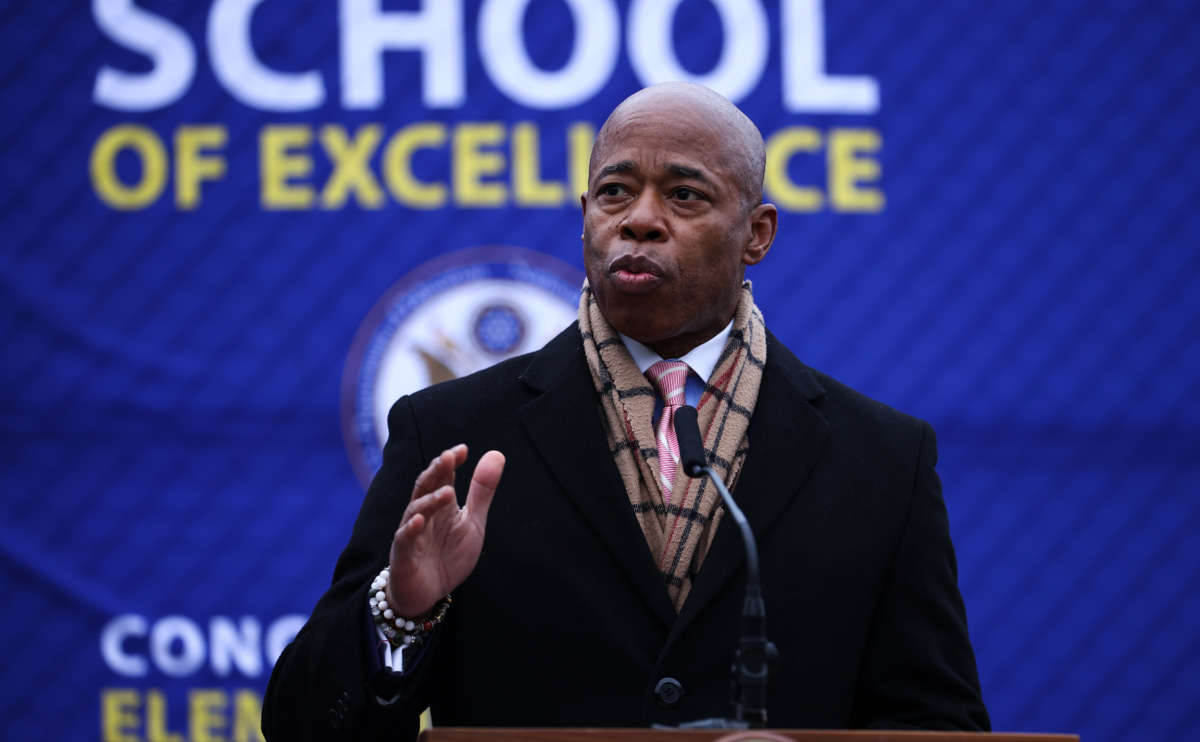New York Rep. Alexandria Ocasio-Cortez (D) has condemned comments by New York City Mayor Eric Adams, who disparaged people he considers “low-skilled workers” in a recent press conference.
On Tuesday, the newly-inaugurated mayor referred to frontline workers as “low-skilled” and said that they wouldn’t be able to do white-collar jobs, perpetuating an age-old stereotype employed by the ruling class. “My low-skilled workers, my cooks, my dishwashers, my messengers, my shoe-shine people, those who work at Dunkin’ Donuts – they don’t have the academic skills to sit in a corner office,” he said.
A clip from the press conference, which amassed over 3.4 million views on Twitter, was met with heavy criticism – including from Ocasio-Cortez, who often speaks out in defense of lower-income workers.
“The suggestion that any job is ‘low skill’ is a myth perpetuated by wealthy interests to justify inhumane working conditions, little/no healthcare, and low wages,” the New York representative wrote on Wednesday.
“[B]eing a waitress has made me and many others *better* at our jobs than those who’ve never known that life,” she added.
Ocasio- Cortez wasn’t the only person to denounce the mayor’s comments on social media. “With a bachelor’s degree I worked part-time at Subway, as a receptionist, and as a cashier at a department store. I sold mattresses with a master’s degree,” wrote journalist Nikole Hannah-Jones. “I also am human enough to know that your job does not dictate your value.”
Scott Hechinger, a public defender in Brooklyn, criticized Adams more generally, pointing to the mayor’s history of uplifting oppressive systems of policing and imprisonment. “Eric Adams seethes with disdain for [the people] of NYC. Insult them. Arrest them. Cage them. Torture them with solitary confinement,” Hechinger wrote. “This is who he is.”
Ocasio-Cortez, who often evokes her former job as a waitress, has been disparaged by some of her conservative colleagues for working in the service industry before becoming a lawmaker. But as she’s pointed out, working such jobs can be extremely taxing, especially when making meager wages during the pandemic.
“Republicans like to make fun of the fact that I used to be a waitress, but we all know if they ever had to do a double they’d be the ones found crying in the walk-in fridge halfway through their first shift because someone yelled at them for bringing seltzer when they wanted sparkling,” Ocasio-Cortez wrote in 2020.
Indeed, a survey conducted last year found that restaurant workers report experiencing more abuse during the pandemic, especially women, who must navigate harassment from customers while relying on tips to survive. Meanwhile, the very same workers who were called “essential” when the pandemic began are now being labeled “low-skill” by people like Adams, even as they continue to put their health on the line in the face of yet another COVID surge.
As labor advocates have pointed out, these low-wage jobs require quite a bit of skill that office workers don’t necessarily have – and labelling jobs as “low-skill” functions as a tool of the ruling class to pit white-collar workers against blue-collar or service industry workers.
“The term low-skill as we use it is often derogatory, a socially sanctioned slur Davos types casually lob at millions of American workers, disproportionately Black and Latino, immigrant, and low-income workers,” Annie Lowrey wrote for The Atlantic last year. “And it positions American workers as being the problem, rather than American labor standards, racism and sexism, and social and educational infrastructure.”
Press freedom is under attack
As Trump cracks down on political speech, independent media is increasingly necessary.
Truthout produces reporting you won’t see in the mainstream: journalism from the frontlines of global conflict, interviews with grassroots movement leaders, high-quality legal analysis and more.
Our work is possible thanks to reader support. Help Truthout catalyze change and social justice — make a tax-deductible monthly or one-time donation today.
